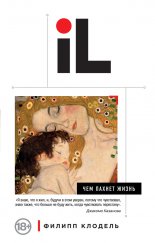»стори€ ƒревнего мира. ќт истоков ÷ивилизации до падени€ –има Ѕауэр —ьюзен

Л1028Ы HeUenica, 5.19, in The Works of Xenophon, vol.†2, translated by H. G. Dakyns (1892).
Л1029Ы Ibid., 5.23. '
Л1030Ы Clayton, p.†203.
Л1031Ы J. M. Cook, Persian Empire, p.†48.
Л1032Ы Panegyricus 50, in Isocrates, Isocrates II, translated by Terry L. Papillon (2004), p.†40.
Л1033Ы Panegyricus 166, in Isocrates, p.†68.
Л1034Ы Green, p.†14.
Л1035Ы Ibid., p.†22.
Л1036Ы Justin, The History, 7.5, in William Stearns Davis, ed., Readings in Ancient History, vol.†1 (Allyn and Bacon, 1912).
Л1037Ы Green, pp.†23Ц24.
Л1038Ы Alexander 6, in Plutarch, Greek Lives.
Л1039Ы Alexander 3, in Plutarch, Greek Lives.
Л1040Ы To Philip 15Ц16, Isocrates, p.†78.
Л1041Ы Diodorus Siculus, 16.14.
Л1042Ы Pomeroy et al., p.†389.
Л1043Ы Justin, History, 8.8.
Л1044Ы Alexander 10, in Plutarch, Greek Lives.
Л1045Ы „астично эта истори€ пересказана ƒиодором —ицилийским, а также јристотелем в его Ђѕолитикеї (перевод –екхэма); см. также Guy MacLean Rogers, Alexander: The Ambiguity of Greatness (2004), pp.†31Ц34.
Л1046Ы Alexander n, in Plutarch, Greek Lives.
Л1047Ы Livy, Rome and Ltaly: Books VIЦX of The History of Rome from Its Foundation, 6.42, translated by Betty Radice (1982), p.†95.
Л1048Ы Ibid., 6.42.
Л1049Ы Edward T. Salmon, The Making of Roman Italy (1982), p.†5.
Л1050Ы Polybius, Rise of the Roman Empire 3.24.
Л1051Ы Mary T. Boatwright et al, The Romans: From Village to Empire (2004), p.†79.
Л1052Ы Livy, Rome and Italy, 7.29, p.†135.
Л1053Ы Ibid., 7.30, pp.†136Ц137.
Л1054Ы Ibid., 8.6, pp.†164Ц165.
Л1055Ы Ibid., 8.10Ц11, pp.†171Ц173.
Л1056Ы Salmon, p.†40.
Л1057Ы Livy, Rome and Italy, 8.14, p.†178.
Л1058Ы Boarwright et al., p.†82.
Л1059Ы Ibid., p.†84.
Л1060Ы Diodorus Siculus, 9.9.
Л1061Ы Soren et al., p.†91.
Л1062Ы Ibid., pp.†90Ц91,128Ц130.
Л1063Ы Diodorus Siculus, 20.6Ц7.
Л1064Ы Soren et al., p.†92.
Л1065Ы Livy, Rome and Italy, 10.13,304Ц305.
Л1066Ы Ibid., 10.28, pp.†327Ц328.
Л1067Ы Green, p.†114.
Л1068Ы Plutarch, The Life of Alexander the Great, translated by John Dryden (2004), p.†13
Л1069Ы Green, p.†118; Plutarch, Alexander the Great, p.†13.
Л1070Ы Diodorus, Siculus, 17.5Ц6.
Л1071Ы Ibid., 17.17.
Л1072Ы Quintus Curtius Rufus, The History of Alexander (позднее сведена ƒжоном ярдли), translated by John Yardley (2001), p.†23; также Arrian, The Campaigns of Alexander, 1.12, translated by Aubrey de Selincourt (1971).
Л1073Ы Arrian, 1.15, p.†73.
Л1074Ы Didodoms Siculus, 17.20; Arrian, 1.16.
Л1075Ы Arrian, 1.17.
Л1076Ы Rufus, 3.15Ц18, p.†27.
Л1077Ы Arrian, 2.8.
Л1078Ы Rufus, 3.12, p.†42.
Л1079Ы Arrian, 2.15, p.†128.
Л1080Ы Alexander 29, in Plutarch, Greek Lives, p.†339.
Л1081Ы G. M. Rogers, pp.†124Ц145.
Л1082Ы Arrian, 3.23.
Л1083Ы G. M. Rogers, p.†135.
Л1084Ы Arrian, 4.9.
Л1085Ы Ibid., 5.4, p.†259.
Л1086Ы Ibid., 5.9, p.†267.
Л1087Ы Alexander 63, in Plutarch, Greek Lives, p.†369.
Л1088Ы Rufus, 9.19.
Л1089Ы Plutarch, Alexander the Great, p.†64.
Л1090Ы Ibid., p.†67.
Л1091Ы Rufus, 10.3.14.
Л1092Ы Plutarch, Alexander the Great, p.†71.
Л1093Ы Rufus, 10.6.13.
Л1094Ы Plutarch, Alexander the Great, p.†72; also Diodorus Siculus, 18 and 19.
Л1095Ы Rufus, 10.9.1.
Л1096Ы Ibid., 10.10.7Ц8.
Л1097Ы Sarvepalli Radhakrishnan and Charles A. Moore, eds. A Soureebook in Indian Philosophy (1957), p.†198.
Л1098Ы Vohra, p.†25.
Л1099Ы Plutarch, Pyrrhus, in Plutarch's Lives, vol.†1, The Dryden Translation, p.†520.
Л1100Ы Plutarch, Demetrius, in Plutarch's Lives, vol.†2, The Dryden Translation, p.†480.
Л1101Ы Plutarch, Pyrrhus, in Plutarch's Lives, vol.†1, The Dryden Translation, p.†537.
Л1102Ы еау, p.†88.
Л1103Ы Thapar, Early India, p.†5.
Л1104Ы Wolpert, p.†57.
Л1105Ы Keay, p.†90.
Л1106Ы Ibid., p.†91.
Л1107Ы Thapar, Early India, p.†180.
Л1108Ы Translated by Romila Thapar in Asoka and the Decline of the Mauryas (1998), p.†255.
Л1109Ы Ibid., pp.†255Ц256.
Л1110Ы Ibid., p.†256 and Keay, pp.†91Ц92.
Л1111Ы Keay, p.†95.
Л1112Ы Wolpert, p.†64. »стори€ ћахинды основана на: Dipavamsa 7, 28Ц31; см. введение ћакса ћиллера к: Sacred Books of the East, vol.†10: The Dhammapada (1981).
Л1113Ы Vohra, p.†25.
Л1114Ы Ibid.
Л1115Ы Charles ќ. Hucker, China's Imperial Past: An Lntroduction to Chinese History and Culture (1975), p.†40.
Л1116Ы Ibid., p.†41.
Л1117Ы ChТien, p.†83.
Л1118Ы Ibid., p.†123.
Л1119Ы Ibid., p.†130.
Л1120Ы Ibid., p.†123.
Л1121Ы Fairbank and Goldman, p.†56.
Л1122Ы Hucker, pp.†43Ц44.
Л1123Ы ChТien, p.†140.
Л1124Ы Ibid., p.†147.
Л1125Ы Sima Qian, ЂThe Biography of the Chief Minister of Qinї. in Historical Records, translated by Raymond Dawson (1994), p.†31.
Л1126Ы Sima Qian, ЂThe Annals of Qinї, in Historical Records, p.†69.
Л1127Ы Jorge Luis Borges, ЂThe Wall and the Booksї, in Daniel Schwartz, The Great Wall of China (2001), p.†10.
Л1128Ы Ann Paludan, Chronicle of the Chinese Emperors: The Reign-by-Reign Record of the Rulers of Imperial China (1998), pp.†18Ц19.
Л1129Ы ChТien, p.†155.
Л1130Ы Arthur Cotterell, The First Emperor of China (1981), p.†28.
Л1131Ы ChТien, p.†156.
Л1132Ы Ibid., pp.†161Ц162.
Л1133Ы Denis Twitchett and Michael Loewe, eds., The Cambridge History of China, Volume I: The Ch Тin and Han Empires, 221 BC-AD 220(1986), p.†113.
Л1134Ы Ibid., p.†117.
Л1135Ы Sima Qian, Records of the Grand Historian: Han Dynasty I, translated by Burton Watson (1993), pp.†74Ц75.
Л1136Ы Plutarch, Demetrius, in PlutarchТs Lives, vol.†2, The Dryden Translation, p.†465.
Л1137Ы Diodorus Siculus, 21.12.
Л1138Ы Plutarch, Pyrrbus, in PlutarchТs Lives, vol.†I, The Dryden Translation, pp.†540Ц541, and Polybius, Rise of the Roman Empire, 2.43.
Л1139Ы Polybius, Rise of the Roman Empire, 1.5, p.†45.
Л1140Ы Ibid., 1.7Ц12.
Л1141Ы Ibid., 1.20, p.†62.
Л1142Ы J. H. Thiel, A History of Roman Sea-power before the Second Punic War (1954), p.†63.
Л1143Ы Polybius, Rise of the Roman Empire, 1.21, p.†64.
Л1144Ы Polybius, The Histories, 1.75, translated by Evelyn Shuckburgh (1889), pp.†83, 85.
Л1145Ы Polybius, Rise of the Roman Empire, 1.58, p.†105.
Л1146Ы Livy, The War With Hannibal: Books XXIЦXXX of The History of Rome from Its Foundation, 21.41, translated by Aubrey de Selincourt (1965), p.†66.
Л1147Ы Polybius, Rise of the Roman Empire, 1. 63, p.†109.
Л1148Ы Plutarch, Cleomenes, in PlutarchТs Lives, vol.†2, The Dryden Translation, p.†351.
Л1149Ы Polybius, Rise of the Roman Empire, 5.34, p.†291.
Л1150Ы Clayton, p.†211.
Л1151Ы Polybius, Rise of the Roman Empire, 5.34, p.†292.
Л1152Ы Ibid., 15.33, p.†491.
Л1153Ы Josephus, Antiquities of the Jews, 12.3.3.
Л1154Ы Polybius, Rise of the Roman Empire, 3.11, p.†189.
Л1155Ы Polybius, Rise of the Roman Empire, 2.1, pp.†11Ц12.
Л1156Ы Soren et al., p.†102.
Л1157Ы Polybius, Rise of the Roman Empire, 3.20Ц21.
Л1158Ы Livy, The War with Hannibal, 21.1, p.†23.
Л1159Ы Polybius, Rise of the Roman Empire, 3.33, p.†209.
Л1160Ы Ibid., 3.49.
Л1161Ы Livy, The War with Hannibal, 21.32, p.†56.
Л1162Ы Ibid., 21.47, p.†72.
Л1163Ы Polybius, Rise of the Roman Empire, 3.68, p.†237.
Л1164Ы Livy, The War with Hannibal, 11.57, p.†83.
Л1165Ы Ibid., 22.7, p.†102.
Л1166Ы Polybius, Rise of the Roman Empire, 3.90, p.†257.
Л1167Ы Ibid., 3.118, p.†275.
Л1168Ы Livy, The War With Hannibal, 27.48. p.†493.
Л1169Ы Ibid., 27.51.
Л1170Ы Ibid., 30.20, p.†644.
Л1171Ы Ibid., 30.36, p.†664.
Л1172Ы Leonard Cottrell, Hannibal: Enemy of Rome (1992), p.†242.
Л1173Ы Livy, The Dawn of the Roman Empire: Books 31Ц40 [of The History of Rome from Its Foundation1, 33.19, translated byj. C. Yardley (2000), pp.†112Ц113.
Л1174Ы Polybius, Rise of the Roman Empire, 18.45, p.†514.
Л1175Ы Ibid., 18.46, p.†516.
Л1176Ы Ibid., 3.11, p.†189.
Л1177Ы Livy, Dawn of the Roman Empire, 36.17, p.†268.
Л1178Ы Plutarch, Flamininus, in PlutarchТs Lives, vol.†1, The Dryden Translation, p.†515.
Л1179Ы Ётот сюжет, помимо других источников, основан на Ђћайтрейо-панишадеї из Ђ—ама-¬едыї.
Л1180Ы Polybius, Histories, 23.7.
Л1181Ы Livy, Dawn of the Roman Empire, 40.5, p.†486.
Л1182Ы Polybius, Histories, 27.1.
Л1183Ы Livy, The History of Rome, vol.†6, translated by E. Roberts (1912), 42.36.
Л1184Ы Ibid., 42.26.
Л1185Ы Ibid., 45.12.
Л1186Ы Josephus, Wars of the Jews, 1.1, in The Works ofJosephus, p.†546.
Л1187Ы John Bright, A History of Israel (1974), pp.†424Ц425.
Л1188Ы Ibid., p.†424.
Л1189Ы 2 Mace. 6:10, Revised Standard Version.
Л1190Ы 2 Mace. 8:1,7Ц9.
Л1191Ы Josephus, Wars of the Jews, 1.4.
Л1192Ы Ibid.
Л1193Ы A. N. Sherwin-White, The Roman Citizenship (1973), p.†42.
Л1194Ы Sima Qian, Records of the Grand Historian, p.†77, 84.
Л1195Ы Di Cosmo, Ancient China and Its Enemies, p.†157.
Л1196Ы Ibid., p.†165.
Л1197Ы Burton Watson, trans., Records of the Grand Historian of China: Translated from the Shih chi of Ssu-ma ChТien, vol.†2 (1968), p.†129.
Л1198Ы Twitchett and Loewe, p.†384.
Л1199Ы Ibid., p.†386.
Л1200Ы Sima Qian, Shih chi 9: The Basic Annals of the Empress Lu, in Records of the Grand Historian, p.†267.
Л1201Ы Sima Qian, Records of the Grand Historian, p.†269.
Л1202Ы Ibid., p.†270.
Л1203Ы Ibid., pp.†273Ц274.
Л1204Ы Ibid., p.†284.
Л1205Ы Sima Qian, Shih chi 123, in Watson, Records, vol.†2, p.†264.
Л1206Ы Hucker, pp.†123Ц125.
Л1207Ы Hucker, p.†128.
Л1208Ы Sima Qian, Shih chi 123, in Watson, Records, vol.†2, p.†264.
Л1209Ы Ibid., p.†269.
Л1210Ы T. W. Rhys Davids, trans., The Questions of King Milinda (1963), Book 1, p.†7.
Л1211Ы Ibid., Book 7, p.†374.
Л1212Ы Josephus, Antiquities of the Jews, 13.14.
Л1213Ы Sima Qian, Shih chi 123, Watson, Records, vol.†2, p.†268.
Л1214Ы Plutarch, Sylla, in PlutarchТs Lives, vol.†1, The Dryden Translation, p.†610.
Л1215Ы Shih chi 123, in Watson, Records, vol.†2, p.†276.
Л1216Ы Soren et al., p.†115.
Л1217Ы Livy, The History of Rome, 6.42.23.
Л1218Ы Plutarch, Marcus Cato, in Plutarch's Lives, vol.†1, The Dryden Translation, p.†478.
Л1219Ы Ibid., p.†478.
Л1220Ы Philip Matyszak, Chronicle of the Roman Republic (2003), p.†120.
Л1221Ы Plutarch, Marcus Cato, in Plutarch's Lives, vol.†1, The Dryden Translation, p.†479.
Л1222Ы Polybius, Histories, 38.3Ц11.
Л1223Ы Ibid. 39, p.†530.
Л1224Ы ћ. I. Finley, Ancient Slavery and Modem Ideology (1980), p.†97.
Л1225Ы Diodorus Siculus, 34.1Ц4.
Л1226Ы Ibid., 34.16.
Л1227Ы Ibid., 34.48.






